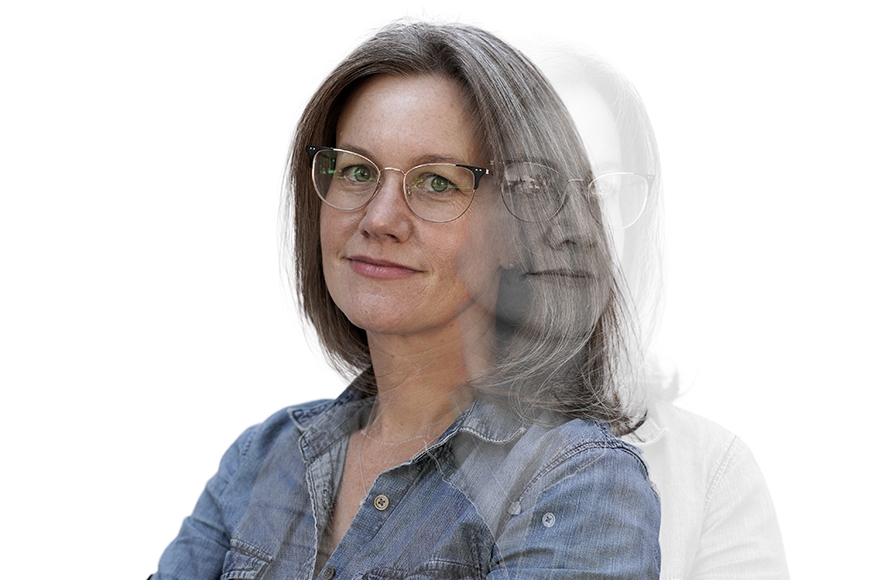Being Part of the Solution
Kathryn Grace (Beverly and Richard Fink Liberal Arts Faculty Innovation Award recipient and associate professor of geography, environment, and society) embraces alternative perspectives to issues related to women’s health and development through the use of a quantitative, mixed-disciplinary approach. She examines the ways that individual, family, or household outcomes are conditioned by place, including both the culture and the natural environment. She explores the underlying theories of development, resource use, and access, building on her own personal experiences and observations from time spent in poor countries and communities.
My research in Africa brings new understanding around how women can access healthcare, including contraception, prenatal care, and care for infants and young children. There are really important system-level barriers that poor women with young children face—especially those women who heavily rely on small-scale farming for their food and income. I’ve been focused on linking all of those things together, and I gained a different perspective on these barriers during the pandemic.
During the pandemic, there were all of these new research questions that people and organizations needed me to help them answer (like how food security is affected by the combined impact of a pandemic and a poor agricultural season), and at the same time, I was also dealing with its impact on life at home. My youngest turned five early in the pan-demic and like many others, we had no child care. And at the same time, I was still deeply committed to my scholarship and new research demands around people in the developing world who were nervous about how the pandemic was going to impact their lives.
Whether it’s things like vaccines or reproductive health care or humanitarian aid, too much of the message seems to be, “Oh, there’s a huge portion of the population that these services aren’t reaching. What’s wrong with those people?” The questions should be: What’s wrong with our system? How do we change the system?
What I’m really driven by is how women and poor people can contribute to building a system where they can access resources. This is a real issue across settings and institutions. When people aren’t using resources designed for them, how do we fix the system?
As a research community, we learned that we can do quite a few things remotely and successfully. It is definitely a different skillset, so we do have to stretch those muscles a bit by organizing meetings differently, for example. I have also been reminded, however, of how important it is to have those physical connections, especially with people from whom I’m trying to learn. It’s less important to be traveling domestically to catch up with some of my colleagues and established research networks; we can do a lot of that over Zoom. However, building and maintaining collaborative relationships with colleagues and community members who have limited internet or prefer more in-person engagement makes this a particularly challenging time.
I do now have to discern (with my colleagues and teams) between what is required travel and what can be done remotely. In other words, I have to be more planful about how I’m going to use my time (and other people’s time) to accomplish the most important goals. At the end of the day, it’s been really hard to form the kinds of relationships that I need to with the collaborators and communities I work with in Africa and Southeast Asia.
I feel fully supported by the University. Were I to say, “I could really use this to help my research have more impact,” I feel the University’s response would be “Okay, how do we get that to you?” And for someone like me, a first-generation college student, who didn’t ever really think they fit in, to have a place that really supports you and thinks you have great ideas, that just feels great.
Kathryn Grace
